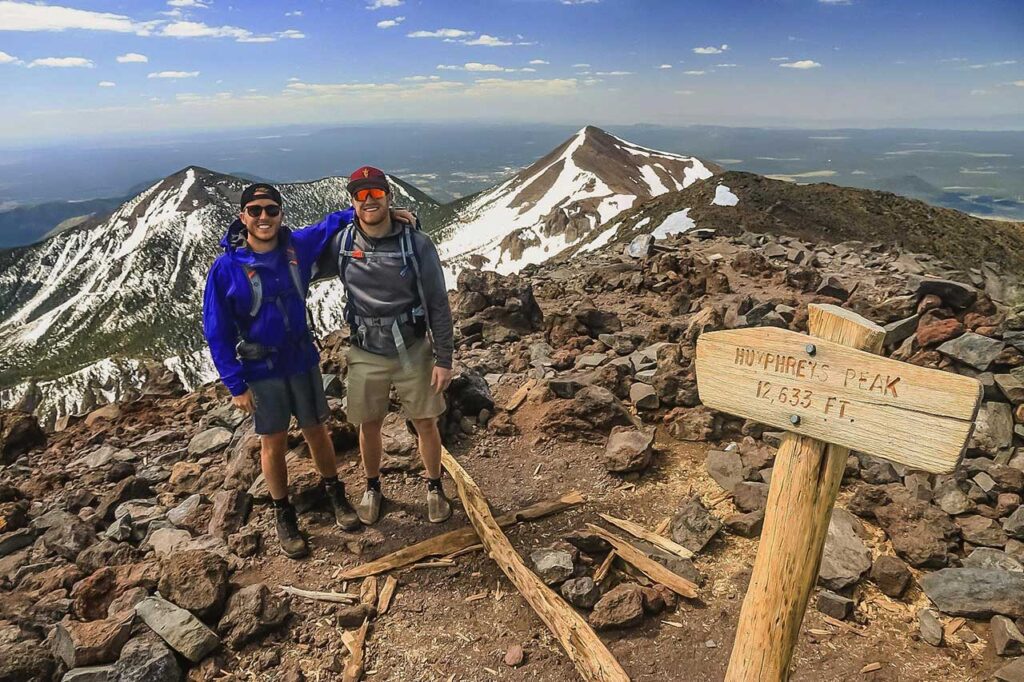Editor’s note: Jesse Dixon joined CAP in 2018 as an electrical engineer and in 2023 was promoted to electrical and control systems engineering supervisor. When he joined CAP, Dixon had already completed both his bachelor’s and master’s degrees; however, he isn’t one to pass up an opportunity for learning. Thus, he took advantage of CAP’s educational benefits and completed a specialized graduate certificate program through the University of Idaho.
What do you get when you couple an uncompromising work ethic and an intense drive for learning? If you’re Jesse Dixon, you get two college degrees, a specialized academic certificate and an extremely fulfilling career.
Dixon, who was born and raised in Washougal, Wash., is the third of four boys. Education was a central part of the home Dixon grew up in, but so was hard work, demonstrated daily by his parents as they devoted their professional careers to starting and running their own electrical contracting company, even while Dixon’s mother home-schooled the boys.
“My dad was an electrician who worked for a company in the area, and he built really good rapport and relationships with customers,” said Dixon. “They told him if he started his own company they would follow him, so he did.”
Dixon said his parents started the company in 2006, shortly before the market crashed, so the path wasn’t always easy. A strong work ethic ensured the company made it through the economic downturn, a work ethic Dixon inherited.
Once Dixon started into higher level math courses, he transitioned from 100-percent home schooling into a small co-op school. When he graduated from high school, he also had a few college classes under his belt and was actively looking for the best school for his next step – obtaining an electrical engineering degree.
“I was accustomed to having a connection with my teachers and a more one-on-one learning environment so I really was concerned whether I would do well at a big college, where the lecture halls are the size of your town,” said Dixon.
Fortunately, Dixon had a family friend who suggested Montana Technological University, popularly known as Montana Tech, located in Butte, Mont. The school had less than 2,500 students, was affordable, and focused on engineering – a perfect fit. By the time Dixon graduated, his hard work and focus had paid off — he’d completed three internships, passed his fundamentals of engineering (FE) exam, and was ready to start working as an engineer. Except, he didn’t feel like he was done with his education.
“I wanted to do research and get more in-depth into power,” Dixon said, “so I asked my professor what schools were good for power, and he said Arizona State University (ASU) or University of Wisconsin in Madison.”
Dixon was tired of the cold. Butte gets an average of 60 inches of snow and has plenty of days where high temps don’t reach freezing. So, he planned a trip to Arizona to visit ASU, in February.
“It was 65 and sunny in Tempe as I walked around campus,” said Dixon. “I thought, ‘This is a no-brainer; sorry Wisconsin, you don’t even come close.’”




He was easily accepted into the power program, and so headed south to prepare for his next adventure. Unlike Montana Tech, nothing about ASU was small, including the number of electrical engineering students pursuing an advanced degree in power.
“I went to a meeting for students interested in being a TA (teaching assistant) expecting a handful of people,” said Dixon. “I walked into a room with 200 grad students all interested in being a TA.”
When they announced PhD candidates would have the priority, Dixon knew he wouldn’t get a position. Then, a woman walked through the back door asking for grad students who could help with engineering 101 classes. The driven Dixon knew it was the perfect opportunity and jumped at the chance. What he didn’t know is how eye-opening the experience would be.
“It was a very basic, easy class, and it was crazy how many kids wouldn’t do the homework or wouldn’t turn it in,” said Dixon. “They were given a rubric to follow and probably only 10% of them would even make the effort to do that.”
Dixon’s experience at ASU continued to show him that a strong work ethic and desire to learn would pay off and after four semesters, he graduated and had four job offers. He chose to work for the Navy as a nuclear engineer on a base in Washington.
“It sounded like very interesting work and there was travel, which I thought would be fun,” said Dixon.
During the next four years, Dixon worked hard and traveled a lot, including stints in Guam, Japan and Coronado, Calif. He continued to learn about his profession and, once he hit the minimum required experience to take the principles and practice of engineering (PE) exam, he took it and passed. He was looking for his next opportunity when he found the Central Arizona Project (CAP) posting for an electrical engineer. He knew he liked the weather in Arizona and found the position challenging. So he applied, interviewed and was hired.




“The most satisfaction I get as an engineer is when someone comes to me with a problem and I get to work on a solution,” said Dixon. “The job at CAP seemed to be just that.”
His instinct was right. Dixon’s work with the Navy had exposed him to controls and power engineering which made it a great fit. Although CAP is a water utility, it takes a lot of power to move that water, and to do that, it has a lot of electrical power systems that rely on controls to operate.
“Ultimately, an engineering degree teaches you how to solve problems,” said Dixon. “Here at CAP, the engineers have a lot of freedom to creatively solve problems which is an incredible opportunity.”
In the six years since he joined CAP, circumstances have improved for Dixon … once again thanks to his strong work ethic and intense drive for learning.
First, he applied, interviewed and was selected to be the supervisor of electrical and control systems engineering.
Second, he used CAP’s educational benefits to assist him with the cost of working toward an academic certificate in power system protection and relaying from the University of Idaho. The program was an intense and concentrated focus on power system protection and relaying. As an employee, Dixon was eligible for up to 80% of tuition and books upon completion of course up to maximum of $8,800 per year.
The amount of work Dixon took on was daunting. He watched three lectures each week and completed up to 20 hours of homework.
“It was a difficult time,” said Dixon. “In addition to the certificate program, I was a new supervisor, plus I hadn’t backfilled my position, so I was still doing that job. I spent 55 nights out of town that first year.”
It’s a path Dixon is happy he took, blazed in part by CAP’s educational benefits. It’s not the only effort he’s made since coming to CAP. He earned his Certified Reliability Leader (CRL) certification and is preparing for his Certified Maintenance & Reliability Professional (CMRP) certification.
“I’ve always been focused on education and mastering my jobs,” said Dixon. “Now that I am supervisor, I am focused on being an outstanding supervisor for my team.”
With his track record, there is no doubt Dixon will do just that!



